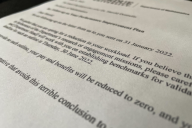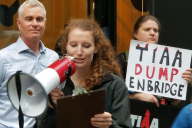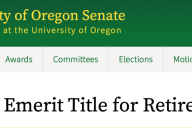You have /5 articles left.
Sign up for a free account or log in.
A novel approach by California's Peralta Community College District may offer a way to avoid having health benefits for retirees consume too large a share of college budgets. The district issued $153 million in bonds in December to finance those benefits -- making it possible to stop paying for the benefits from the same pot of money that provides salaries and health benefits for current faculty members and other employees.
The Peralta district is believed to be the only one using this approach, and officials recently briefed a national group of bond experts interested in the idea. While the approach may not work everywhere -- Peralta was able to issue the bonds based on a judge's order and did not have to take the bonds to voters -- some experts believe this is a tactic to watch. Significantly, the Peralta approach was developed by administrators and a faculty union, with both signing off.
Prior to the new system, the district was spending about $6.5 million on retiree health benefits. The benefits had been promised years ago, prior to the periods when budgets got tighter and people started to live longer. Adequate funds were never set aside, so the district had to come up with the money each year. Thomas Smith, vice chancellor for budget and finance at the system, said benefits for retirees were shifting from 5 to 10 percent of the college's general operating budget, a proportion he considered problematic.
So does Michael Mills, a political scientist and historian who heads the Peralta Federation of Teachers, an affiliate of the American Federation of Teachers. Mills said that in contract negotiations, the district was arguing that it couldn't provide raises or benefit improvements being sought by current employees because so much money was going to retired employees. Mills said that the district had two options -- paying for these "unfunded liabilities" through the funds that should have gone to current employees, or cutting retiree benefits. Both approaches, he said, were "undesirable from a moral standpoint."
In addition to using the bonds to pay for the benefits, the district and the union also agreed on another cost-saving move. Current employees would continue to be eligible for the same health benefits upon retirement, but for new employees, their college-sponsored health benefits would last only until they receive Medicare. College and union officials both agreed that the college's benefits are better, but stressed that this approach meant that retirees would never be without health insurance, and the district would be able to keep its promises both to current retirees and those who have been working for some time based on an expectation of the benefits they would receive upon retiring.
Mills said that the new system is the sort of two-tiered system that unions don't like, and he doesn't like it either. But he added that "we were all being pushed into the corner and this was a way out." He said that he hears from other unions about attempt to deal with the problem "by screwing retirees" and he thinks this approach, if not perfect, is reasonable.
"This also means that when we are at the bargaining table, we don't need to spend our energy on retiree benefits," he said.
Smith, the district vice chancellor who developed the new system, said he too sees it as much better than haggling over retiree benefits every year. One of the major problems with the old system, typical of those at many colleges, is uncertainty each year over where the money will come from. "There was just no way to match cash flows and revenues," he said.
Donna Popovich, executive director of human resources at the University of Tampa, said that the costs of retiree health benefits are attracting increasing attention these days from HR officials at many campuses. Her institution is contributing to reimbursement accounts that employees will be able to maintain upon retiring, but she said that her institution is also trying to make sure retirees understand the costs they may face later. Given the complexities involved, she's not sure if she would consider a Peralta-type approach, but called it "very exciting."
Smith said that when he spoke to government bond advisers about the idea recently, he received considerable interest, so he hopes the idea spreads. His union president agrees. Said Mills: "It's really lamentable that no one else is doing this yet."








